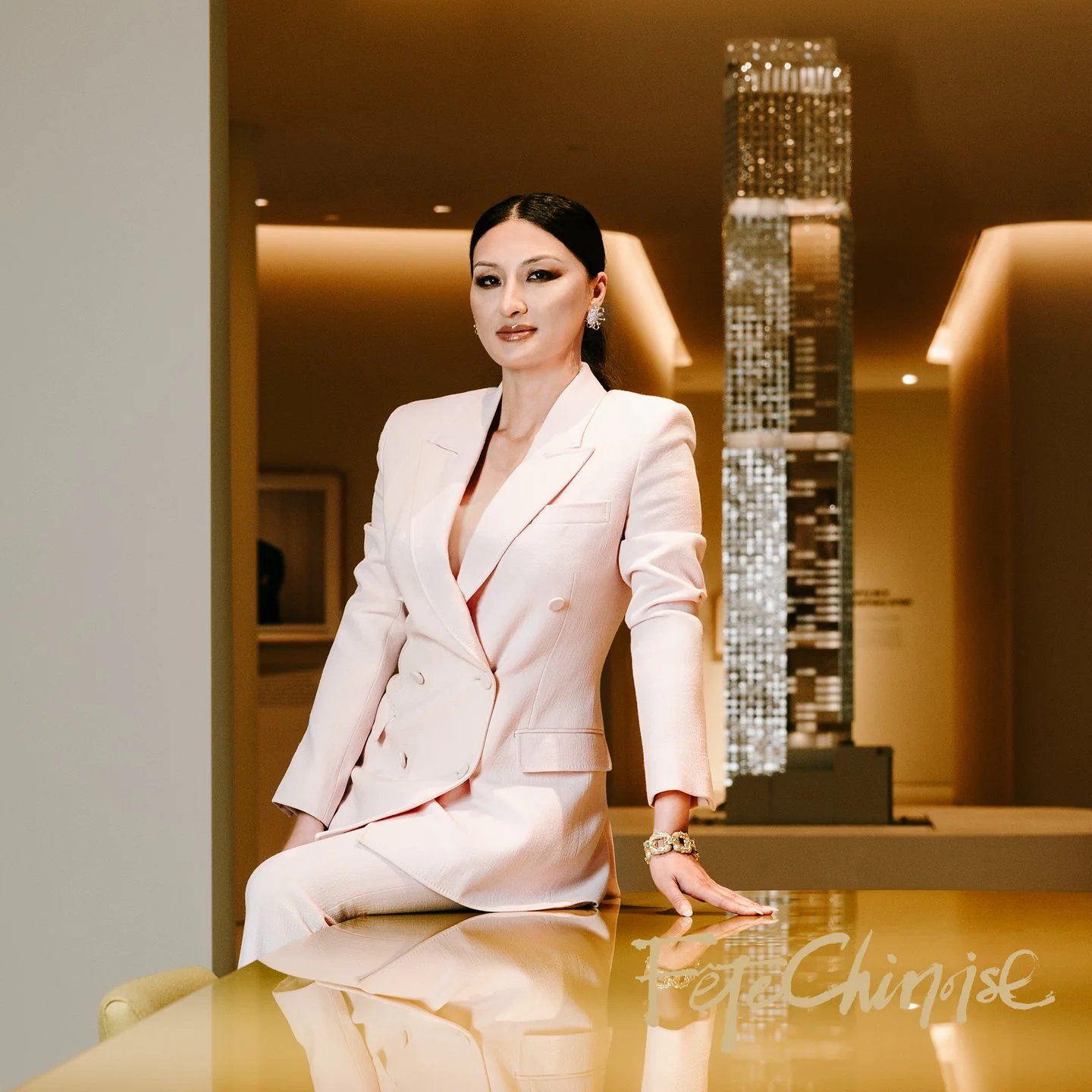These Eyes of Mine
An essay of self-reflection by Yinsey Wang
Photography: Bella Kotak | Makeup: Minaz Mawjee| Hair: Annette Gray |Flowers: Safia Designs | Headpiece: Mr Mortimer’s Wife | Retouch: Bella Kotak and Solstice Retouch
Self portrait by Bella Kotak
Creativity is an escape for me, as a way to feel anything is possible. How a piece of art can move someone, regardless of who they are, resonates with me so powerfully. My identity as a Chinese woman, who was born and raised in the London suburbs, has been something I had been silently fighting for so long. During secondary school, I remember throwing away my homemade food on several occasions for fear of ostracization as a teenager. I recall men rudely shouting Japanese and Chinese words at me as a young woman, who was just trying to walk down the street. I had been physically attacked some years ago, ironically, around London’s China Town, as a stranger imitated the Chinese language in an obnoxious manner. My name was always a source of confusion for many, as I got mixed up with other Chinese people. As an optimist, I refused to let these experiences take away my agency, although they did dull my confidence. I went from a boisterous, bossy schoolchild, to one that was quiet, reserved, almost the perfect stereotype of the “quiet Asian girl”.
My English childhood was magical, filled with fairies, mermaids and pirates, as well as bold adventurers that would go where no one else had gone before. However, when consuming mass media as a child, none of these exciting fantastical worlds included people that looked like me. Then, I managed to discover manga and Asian fairytales (such as the legend of Mulan and the Monkey King), and my imagination went wild. I would write and draw stories, searching for my voice in a world of make-believe. Today, I am a lawyer, but I fiercely hold on to the escapism that inspired me. I think that fundamentally, many of us need heroes and sometimes it is hard as a minority to see ourselves as a protagonist. The world of fantasy gave me the chance to weave my own stories, where I could be the main character. This visualisation is captured in many of my modelling and self-portraiture works, and I was so grateful and humbled to receive messages of support from other Asians, who became interested to try their hand themselves at these artforms.
Photography: Lillian Liu | Hair: Annette Gray | Makeup: Victoria Leanne
Self portrait by Yinsey Wang | Halo: Carbikova Crowns | Dress: Lyris Design
The Chinese population does not even make up 1 percent of the population of the United Kingdom. It was even smaller when I was growing up. Whereas in Canada, Chinese people make up about 5 percent of the population. When I came to study in Toronto, it was a bit of a culture shock. It was a transformative and an exciting time for me to really get the chance to define who was Yinsey, instead of who was that “random Chinese girl”. In fact, I sometimes people would see me as the “random British girl”, which in a way extremely refreshing, given I had often been asked “where I was really from?” in England. Indeed, fellow Canadian-Asians may struggle with identity too, and is a universal issue for many diaspora. However, given there was more Asian representation in Canada at a scale I had not seen before, it gave me a cheeky new lease of life to reinvent myself. Returning to the UK, I drew so much from the incredible initiatives and solidarity movements that I saw in Canada, and from meeting a Chinese veteran of World War II who helped stir thoughts within me about belonging and sacrifice. Canada, like any country including the UK, is far from perfect and has its own colonial and unequal foundations to hold the mirror to, but the rich tapestry of experiences stayed with me, giving me a stronger sense of self-belief.
Self portrait by Lillian Liu
In the wake of anti-Asian attacks across the globe, I find myself anxious about how we manage the fight for equality. The feeling of instability, frustration and fear is present in many of us, yet I have been awed by the voices emerging on these dark times. They offer the chance for community-building and activist movements, such as Stop Asian Hate. Tracing back to my love of fairytales and fantasy, I’ve had the lovely opportunity to work closely with my long-time friends and collaborators, Lillian Liu and Bella Kotak, in creating Enchanted Asian Day which takes place on the second Saturday of every June (11 June). This invites all to tag Asian creators in this space, to showcase innovation, storytelling and craftsmanship. We were inspired by and indebted by the movement Black Fae Day. The feedback has been overwhelming, generating so much constructive dialogue and debate, as well as giving others the opportunity to champion Asian art and writing.
With the boldness of us, as individuals and communities, taking up space, my eyes look to a more hopeful future. My heart is filled with the amazing stories shared during this time of recollection, reclamation and reinvigoration of the Asian diaspora, as we challenge perceptions, and instead of casting our eyes upon what others see, we now vocalise what we see.
sponsored by ferris wheel press.













In Universal Music Canada’s innovative headquarters in Toronto’s Liberty Village, Jeffrey Remedios oversees a creative hub that opened its doors in 2022, marking a new chapter for the company in the post-pandemic era. The space, designed to foster collaboration, imagination and innovation, features state-of-the-art recording studios, a performance venue and open-concept office areas bathed in natural light.